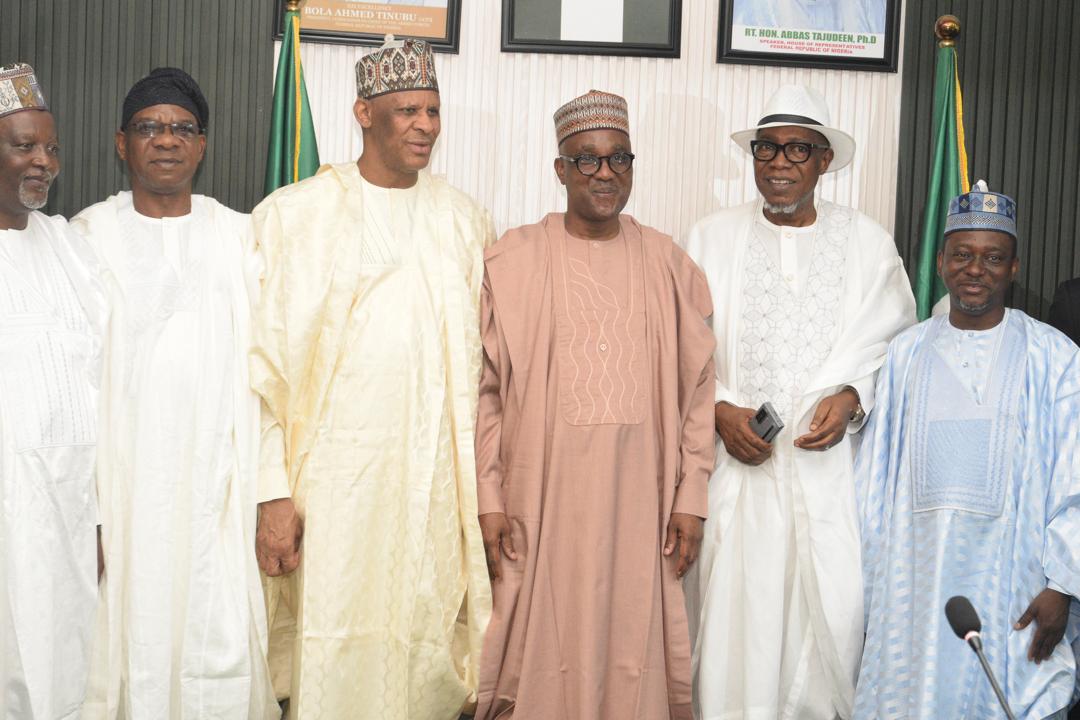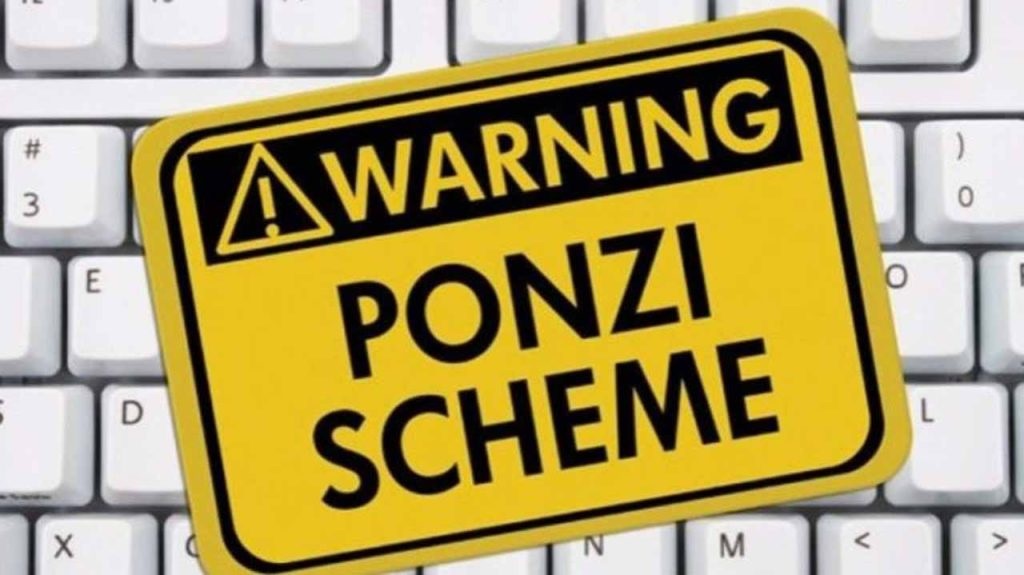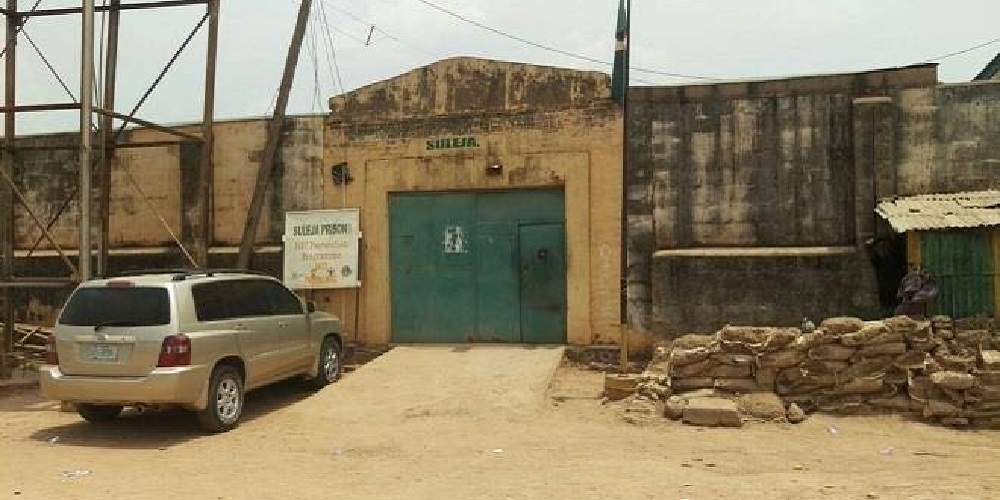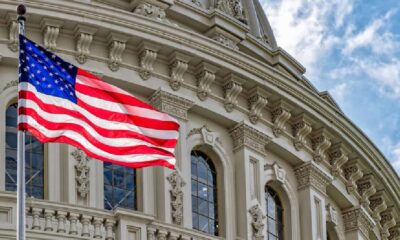News
Petrol Prices in Nigeria: Landing Cost Drops Amid Global Oil Fluctuations

The landing cost of Premium Motor Spirit (PMS), commonly known as petrol, has fallen to N981 per litre, according to recent data from the Major Energies Marketers Association of Nigeria (MEMAN).
This marks a significant decrease from the previous cost of approximately N1,130 per litre as of September 25, 2024, primarily driven by a decline in global crude oil prices.
Global Crude Oil Prices Influence Petrol Costs
Recent fluctuations in crude oil prices have had a direct impact on the cost of refined petroleum products in Nigeria. Brent crude, the global benchmark, traded at $71.41 per barrel on Thursday, down from $73.46 the previous day. In August 2024, the average price was around $80.36 per barrel, but has since fluctuated between $70 and $75 per barrel due to lower oil demand in China and expectations of increased production from the Organisation of Petroleum Exporting Countries (OPEC).
Increase in Petrol Imports Amid Local Production
Despite the decrease in landing costs, petrol pump prices in Nigeria have seen an increase. Major oil marketers have begun importing petrol following recent deregulation in the downstream oil sector, with three major marketers confirming the arrival of vessels carrying approximately 141 million litres of PMS. This shift comes as the Dangote Petroleum Refinery ramps up local petrol production after decades of reliance on imports.
Regional Variations in Petrol Pricing
According to MEMAN, the average ex-depot price of petrol varies across Nigeria. In Lagos, it ranges between N865 and N1,200, while in Calabar, it is between N980 and N1,400, and in Port Harcourt, it falls between N1,200 and N1,400. Diesel prices have also seen changes, now averaging N1,089 per litre, with aviation fuel priced at N1,117.34.
Implications of Pricing Negotiations
The Nigerian National Petroleum Company (NNPC) has faced scrutiny over its pricing strategy, especially following the unveiling of locally-produced fuel by Dangote. The NNPC announced that it would sell petrol lifted from the Dangote refinery at prices exceeding N1,000 per litre in northern states, with varying prices across the country. Despite negotiations, pricing remains market-driven, as explained by NNPC’s Executive Vice President, Dapo Segun.
Future Outlook
With the impending commencement of naira crude sales on October 1, 2024, there is optimism among Nigerians that petrol prices may stabilize further. As the market continues to evolve, consumers are hopeful for a reduction in petrol costs, benefiting from both local production and imported supplies.
Overview of Nigeria’s Oil Sector
Nigeria is one of Africa’s largest oil producers and has a significant role in the global oil market. The country’s economy is heavily reliant on oil exports, which account for a large portion of government revenue and foreign exchange earnings. However, Nigeria has faced numerous challenges, including fluctuating global oil prices, inadequate refinery capacity, and currency instability.
Recent Developments in Petrol Pricing
1. **Landing Cost Reduction**: The recent drop in the landing cost of petrol to N981 per litre is a significant development, especially as it was previously over N1,130. This reduction is attributed to a decrease in global crude oil prices, which have fluctuated due to various factors, including demand changes and OPEC production decisions.
2. **Impact of Global Oil Prices**: The Brent crude oil price has been volatile, affecting local petrol prices directly. When global oil prices decrease, it typically leads to lower landing costs for imported fuel. Conversely, increases in prices can trigger higher consumer prices domestically.
3. **Deregulation and Imports**: The Nigerian government has recently deregulated the downstream oil sector, allowing private marketers to import petrol. This move aims to foster competition and stabilize supply. Major oil marketers have begun importing petrol, which is essential for meeting local demand, especially as local refineries ramp up production.
4. **Local Refinery Operations**: The Dangote Petroleum Refinery, one of the largest in Africa, has recently started producing petrol. This is a pivotal change for Nigeria, which has long relied on imported fuel. The refinery is expected to enhance local production capacity, reduce dependence on imports, and potentially lower prices.
Challenges Facing the Oil Sector
1. **Currency Fluctuations**: The Nigerian naira has faced depreciation against major currencies, impacting the cost of imported goods, including fuel. The exchange rate plays a crucial role in determining the landing costs of petrol and other petroleum products.
2. **Infrastructure Issues**: Despite having significant oil reserves, Nigeria’s refining capacity has been historically underutilized due to infrastructural challenges and maintenance issues. Investments in refining capacity and infrastructure are essential for boosting local production.
3. **Economic Diversification**: The heavy reliance on oil has made Nigeria vulnerable to price shocks in the global oil market. As a result, there are ongoing discussions about diversifying the economy to reduce dependence on oil and enhance resilience against market fluctuations.
4. **Regulatory Environment**: The shift towards deregulation is part of a broader strategy to improve efficiency in the oil sector. However, the transition comes with challenges, including ensuring that consumers benefit from competition and that prices remain stable.
Future Prospects
Looking ahead, the combination of local refinery production, increased imports, and ongoing regulatory changes could lead to a more stable petrol market in Nigeria. If the Dangote refinery operates at full capacity and other private refineries follow suit, there may be a significant reduction in import dependency.
Moreover, effective management of the oil sector, along with strategic investments in infrastructure and technology, could enhance productivity and efficiency. This would not only stabilize petrol prices but also contribute to overall economic growth.
In summary, while there are positive developments in the Nigerian oil sector, challenges remain. The government’s approach to deregulation, support for local production, and management of external factors will be crucial in shaping the future of petrol pricing and energy security in Nigeria. If you have more specific aspects you want to explore or questions about, feel free to ask!
Source: thecheernews.com
News
Reps Set Up 21-Member Committee to Monitor Rivers State Affairs

By Gloria Ikibah
Speaker of the House of Representatives, Rep. Abbas Tajudeen, has launched a 21-member ad-hoc committee to keep an eye on governance in Rivers State during the current State of Emergency.
Speak Abbas during the inauguration of the committee, on Tuesday, said the move shows the National Assembly’s dedication to upholding the constitution and keeping things transparent.
He explained that the committee is meant to help maintain stability in Rivers State after President Bola Tinubu announced a six-month State of Emergency on March 18.
He said: “The 10th House of Representatives inaugurates an Ad-Hoc Committee tasked with overseeing the administration of Rivers State during the present emergency period.
“This moment marks not only a critical milestone in our constitutional mandate but also a display of our dedication to transparent governance and the rule of law in our country”.
President Tinubu’s declaration, made under Section 305 of the 1999 Constitution (as amended), followed what the Speaker described as a “grave crisis threatening public order.”
He made it clear that the President’s decision wasn’t made lightly, but was driven by a real concern for the safety and well-being of the people in Rivers State and the country overall.
Speaker Abbas also pointed out that this isn’t the first time the federal government has stepped in during a crisis. He mentioned past examples like Plateau in 2004, Ekiti in 2006, and the northeast states—Borno, Adamawa, and Yobe—in 2013, saying the goal has always been to bring back peace and restore normal government operations.
“In those periods of dire security and governance challenges, the National Assembly assumed a vital role in upholding constitutional order,” he said. “Our actions today are grounded in Section 11(4) of the 1999 Constitution, which confers upon us the authority to make laws for any state whose elected legislative body is unable to perform its statutory functions.”
The Speaker also clarified that the current caretaker government in Rivers State, led by Rear Admiral Ibok-Ete Ekwe Ibas (Rtd.), is a temporary arrangement intended to maintain order and perform basic governance functions until democratic institutions are restored.
“His role is strictly circumscribed, as he is charged with maintaining law and order and ensuring that the basic functions of governance are met only until full democratic governance is restored,” Abbas noted.
He aadded hat the Administrator must report directly to the National Assembly.
He urged the committee to uphold the highest standards of integrity and professionalism, cautioning against partisanship.
“You have been entrusted with the heavy responsibility of justifying the confidence reposed in you by the entire nation.
“You must conduct your oversight in strict accordance with the Constitution and avoid all forms of partisanship or bias”, he charged.
The Speaker emphasised that beyond oversight, the committee is expected to play a proactive role in peace-building and reconciliation efforts in Rivers State.
“Your work must actively support efforts to restore lasting peace and re-establish a fully functioning democratic system in Rivers State.
“This historic responsibility calls for conscientious, forthright and astute governance”, he added.
Speaker Abbas further reaffirmed that the National Assembly’s intervention is not an instrument of political vendetta but a constitutional necessity.
“We act not out of partisan interests but in the earnest service of a united and prosperous Nigeria.
“It is now my solemn duty and distinct honour to officially inaugurate the House Ad-Hoc Committee to Oversight Rivers State”, he stated.
The newly formed committee is expected to submit periodic reports to the House, monitor the implementation of federal policies in Rivers State, and ensure that the caretaker administration operates within constitutional boundaries.
In his response, Chairman of the adhoc committee and leader of the House, Rep. Julius Ihonvbere pledged their commitment to the task given to them.
He said: “We will not disappoint Nigerians, we will be committed to this task.
“If I am not wrong, this is probably the strongest ad hoc committee ever set up since 2019. So, to make our work a lot easier, with the experience, with the exposure, with the dedication, with the commitment to unbiased dispositions on national issues, I assure you on behalf of my colleagues in the ad hoc committee that we will not disappoint you, we will not disappoint the National Assembly, and we will not disappoint Nigeria.
“We will begin our work immediately and we will remain transparent, committed, and unbiased in the deliverance of our values.Once again, Mr. Speaker, we thank you for being the true Nigerian, the true patriot that you are. And I’m sure that when the history of Nigeria is written, there will be several extra pages added to your chapter”.
Members of the Committee include: Hon. Prof. Julius Ihonvbere – Chairman, Rep. Ali Isa J.C. – Deputy Chairman,Hon. Isiaka Ibrahim , Rep. Idris Ahmed Wase , Rep. Aliyu Muktar Betara, Rep. Sada Soli, Rep. James Abiodun Faleke, Rep. Igariwey Iduma Enwo, Rep. Shehu Saleh Rijau, Rep. Wole Oke.
Others are :Rep. Akarachi Etinosa Amadi, Rep. Patrick Umoh, Rep. James Barka,Rep. Alex Egbona, Rep. Isa Anka, Rep. Amos Daniel, Rep. Erhiatake Ibori-Suenu,Rep. Onuh Onyeche Blessing, Rep. Fatima Talba , Rep. Chris Nkwonta, and Rep Ebibake Marie Enenimiete.
News
CBEX: 60 fraudulent Ponzi scheme operators to avoid in Nigeria

The Economic and Financial Crimes Commission (EFCC) has warned citizens to steer clear of 60 illegal Ponzi scheme operators in Nigeria.
These companies, operating without registration with the Central Bank of Nigeria (CBN) or the Securities and Exchange Commission (SEC), have been identified as potential threats to the financial well-being of unsuspecting Nigerians.
According to the EFCC, some of these operators have already faced legal action, with five convicted and another five pleading guilty, awaiting sentencing.
The commission’s warning comes as a timely reminder for Nigerians to exercise caution when investing their hard-earned money.
The list of operators to avoid includes companies operating in various sectors, including agriculture, investment, and finance.
Full list below;
Wales Kingdom Capital
Bethseida Group of Companies
AQM Capital Limited
Titan Multibusiness Investment Limited
Brickwall Global Investment Limited
Farmforte Limited & Agro Partnership Tech
Green Eagles Agribusiness Solution Limited
Richfield Multiconcepts Limited Forte Asset Management Limited
Biss Networks Nigeria Limited
S Mobile Netzone Limited
Pristine Mobile Network
Letsfarm Integrated Services
Bara Finance & Investment Limited
Vicampro Farms Limited
Brooks Network Limited
Gas Station Supply Services Limited
Brass & Books Limited
Annexation Biz Concept & Maitanbuwal Global Venturescrowdyvest Limited
Crowdyvest Limited
Jadek Agro Connect Limited
Adeeva Capital Limited
Oxford International Group
Oxford Gold Integrated
Skapomah Global Limited
MBA Trading & Capital Investment Limited
TRJ Company Limited
Farm4Me Agriculture Limited
Quintessential Investment Company
Adeprinz Global Enterprises
Rockstar Establishment Limited
SU.Global Investment
Citi Trust Funding PLC
Farm Buddy
Eatrich 369 Farms & Food
Globertrot Farmsponsors Nigeria Limited
Farm Sponsors Limited
Cititrust Credit Limited
Farmfunded Agroservices Limited
Adamakin Investment & Works Limited
Cititrust Holding PLC
Green Eagles Agribusiness Solutions Limited
Chinmark Homes & Shelters Limited
Emerald Farms & Consultant Limited
Ovaioza Farm Produce Storage Limited
Farm 360 & Agriculture Company
Requid Technologies Limited
West Agro Agriculture & Food Processing Limited
NISL Ventures Limited & Estate of Laolu Martins
XY Connect Investment Limited
River Branch Unique Investment Limited
Hallmark Capital Limited
CJC Markets Limited
Crowd One Investment
Farmkart Foods Limited
KD Likemind Stakeholders Limited
Holibiz Finance Limited
Ifeanyi Okpe Oil & Gas Services
Servapps Nigeria Limited
Barrick Gold Mining Company
360 Agric Partners Limited.
How to Protect Yourself
To avoid falling prey to these illegal Ponzi schemes, Nigerians are advised to:
1 Verify investment opportunities with the CBN and SEC before committing funds
2 Be wary of unusually high returns on investment
3 Research the company’s background and reputation
4 Report suspicious activities to the EFCC
By being vigilant and informed, Nigerians can protect themselves from the dangers of Ponzi schemes and make informed investment decisions. Stay safe, and stay informed.
News
NCoS Refutes Claims of Starvation in Prisons, Ensures Transparency

In response to recent allegations suggesting widespread hunger and fatalities among inmates, the Nigerian Correctional Service (NCoS) has firmly denied the claims, assuring the public that feeding standards remain intact and strictly monitored across custodial centres nationwide.
Speaking with journalist in Abuja on Tuesday, the Service’s Public Relations Officer, Abubakar Umar, dismissed the reports as “sensational, misleading, and devoid of truth.” He emphasized that the welfare of inmates, including their nutrition, remains a top priority under the supervision of both state and federal authorities.
“Inmates are not starving. There is no evidence, either in our records or from any credible oversight body, suggesting that custodial centres are neglecting their duty to feed inmates adequately,” Umar stated.
He explained that the Federal Government allocates a dedicated budget annually for inmate feeding, which is judiciously managed under stringent guidelines. “Every inmate is entitled to three meals daily — breakfast, lunch, and dinner — as clearly provided for in our operational manual,” he said.
Umar further questioned the credibility of the reports, citing the strict access protocols in place at custodial facilities. He noted that no unauthorized interviews with inmates could have occurred, given that access requires multiple layers of clearance, and the use of recording devices is prohibited within the facilities.
“How does a journalist claim to have interviewed inmates in such a controlled environment without any official clearance or access?” he asked. “That alone casts doubt on the authenticity of the reports.”
To reinforce its commitment to inmate welfare, Umar said the NCoS has put in place an internal monitoring system, with officers-in-charge held accountable for the utilization of resources, especially feeding provisions. He said supervisory structures exist at both the national and state levels to maintain compliance and discipline.
“Any officer found negligent or complicit in mismanaging resources faces disciplinary action in line with our code of conduct,” he stated.
While acknowledging operational challenges, Umar maintained that such issues have not translated into hunger or starvation within correctional centres. He warned that false narratives could damage the reputation of the Service and cause undue public concern.
“We are aware of the economic situation, but it has not compromised our duty to feed or care for those in custody,” he said. “We call on media houses to verify information through the appropriate channels before publication.”
Umar highlighted the current administration’s efforts in improving the welfare of inmates, including a significant 50 percent increase in the feeding budget approved by President Bola Tinubu’s government. He also lauded the Minister of Interior, Dr. Olubunmi Tunji-Ojo, for championing reforms in the correctional system.
“There is an ongoing review of inmate welfare and feeding programmes. Reforms are already underway and will yield even more positive changes,” he said.
He concluded by inviting civil society groups, media professionals, and international observers to visit correctional centres for independent assessments, stressing that transparency and accountability remain core to the NCoS’s operations.
“Our doors are open for oversight visits. We believe in constructive engagement that can help us do better,” Umar said. “We are not just holding inmates; we are working to rehabilitate and reintegrate them into society with dignity.”
The NCoS has reiterated its commitment to international standards on inmate care and has urged the public to disregard the alarming claims, which it described as fabricated and harmful to ongoing reform efforts.
-

 News22 hours ago
News22 hours agoYou must refund N300m, Rivers State tells NBA
-

 News3 hours ago
News3 hours agoSHOCKING! One month after giving birth, woman discovers another baby in her womb
-

 News9 hours ago
News9 hours agoPeter Obi speaks as Benue govt. blocks humanitarian visit
-

 Foreign22 hours ago
Foreign22 hours agoUS orders 30-day registration for all foreign nationals or face jail, deportation
-

 News10 hours ago
News10 hours agoFUOYE VC suspended over sexual harassment allegations
-

 News3 hours ago
News3 hours agoAngry investors raid CBEX office, loot assets in Ibadan after digital Platform crash
-

 Opinion19 hours ago
Opinion19 hours ago“Chief. Dr. Ekuogbe Akpodiete; A Philanthropist, Lawyer, and Statesman”
-

 News10 hours ago
News10 hours agoVideo: Woman Shares Her ‘Japa’ Experience, Claims Burkina Faso Is Preferable to Nigeria






